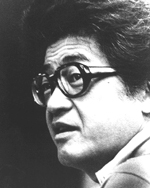 W
WKōbō Abe , pen name of Kimifusa Abe , was a Japanese writer, playwright, musician, photographer and inventor. Abe has been often compared to Franz Kafka and Alberto Moravia for his modernist sensibilities and his surreal, often nightmarish explorations of individuals in contemporary society.
 W
WHiroyuki Agawa was a Japanese author. He was known for his fiction centered on World War II, as well as his biographies and essays.
 W
WAizu Yaichi was a Japanese poet, calligrapher and historian.
 W
WKiku Amino was a Japanese author and translator of English and Russian literature. She was a recipient of the Women's Literature Prize, the Yomiuri Prize, and Japan Academy of the Arts prize.
 W
WJeffrey Angles (ジェフリー・アングルス) is a poet who writes free verse in his second language, Japanese. He is also an American scholar of modern Japanese literature and an award-winning literary translator of modern and contemporary Japanese poetry and fiction into English. He is a professor of Japanese language and Japanese literature at Western Michigan University.
 W
WAkiko Baba is a Japanese tanka poet and literary critic. Her real name is Akiko Iwata .
 W
WIkuma Dan was a Japanese composer.
 W
WKazuo Dan was a Japanese novelist and poet.
 W
WTsuneari Fukuda was a Japanese dramatist, translator, and literary critic. From 1969 until 1983, he was a professor at Kyoto Sangyo University. He became a member of the Japan Art Academy in 1981.
 W
WHideji Hōjō was the pen name of a Japanese author, novelist, and playwright in Shōwa period Japan. His real name was Iino Hideji .
 W
WNoriko Ibaragi was a Japanese poet, playwright, essayist, children's literature writer, and translator. She is most well known for her poem, Watashi ga ichiban kirei datta toki , written twelve years after the Japanese defeat in WWII. In 1953, she co-founded the literary journal Kai ("Oars"). She began to learn Korean as a second language at the age of fifty, going on to publish her own translations of poetry by her Korean contemporaries.
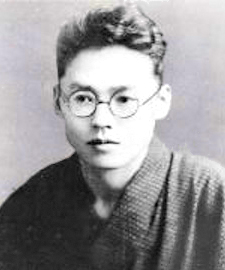 W
WMasuji Ibuse was a Japanese author. His most notable work is the novel Black Rain.
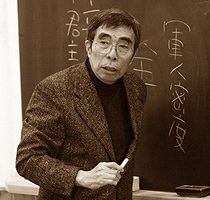 W
WInoue Hisashi was a leading Japanese playwright and writer of comic fiction. From 1961 to 1986, he used the pen name of Uchiyama Hisashi.
 W
WYasushi Inoue was a Japanese writer of novels, short stories, poetry and essays, noted for his historical and autobiographical fiction. His most acclaimed works include The Bullfight, The Roof Tile of Tempyō and Tun-huang.
 W
WMomoko Ishii was a distinguished Japanese author and translator of children's books. She was the first member of the Japanese Art Academy from the field of children's literature.
 W
WAkatsuki Kambayashi , pseudonym of Tokohiro Iwaki, was a noted Japanese author in the I Novel genre.
 W
WAya Kōda was a Japanese essayist and novelist. She was the second daughter of Meiji period novelist Kōda Rohan. Her daughter Tama Aoki and granddaughter Nao Aoki are also writers.
 W
WKōno Taeko is one of the most important Japanese writers of the second half of the twentieth century, someone whose influence on contemporary Japanese writers is acknowledged to be immeasurable. Kōno is one of a generation of remarkable women writers who made an appearance in Japan in the 1960s and 1970s and who include Kurahashi Yumiko, Mori Mari, Setouchi Harumi, and Takahashi Takako. She also established a reputation for herself as an acerbic essayist, a playwright and a literary critic. By the end of her life she was a leading presence in Japan's literary establishment, one of the first women writers to serve on the Akutagawa Literary Prize committee. Oe Kenzaburo, Japan's Nobel Laureate, described her as the most "lucidly intelligent" woman writers writing in Japan, and the US critic and academic Masao Miyoshi identified her as among the most "critically alert and historically intelligent." US critic and academic Davinder Bhowmik assesses her as “…one of the truly original voices of the twentieth century, beyond questions of gender or even nationality.” A writer who deals with some quite dark themes, Kōno is known to readers in English through the collection of short stories Toddler-Hunting and Other Stories, which draws together her best writing from the 1960s.
 W
WMantarō Kubota was a Japanese author, playwright, and poet.
 W
WHakuchō Masamune , born Tadao Masamune, was a noted Japanese critic and writer of fiction, and a leading member of the Japanese Naturalist school of literature.
 W
WTakashi Matsumoto was a Japanese haiku poet active in Shōwa period Japan.
 W
WAkimoto Matsuyo was one of Japan's leading playwrights of post war Japan, and most respected as a realist Japanese playwright. She was known for her shingeki plays, but had written some classical puppet bunraku and kabuki dramas, and later became a scriptwriter for both radio and television shows. Along with Akimoto's childhood, World War II played a significant role in her career. As a realist playwright, she used her work to make political statements in order to warn the greater Japanese community that the government was trying to continue their pre-war imperial system which was fulfilled with capitalism, militarism, and patriarchy.
 W
WYukio Mishima , born Kimitake Hiraoka , was a Japanese author, poet, playwright, actor, model, Shintoist, nationalist, and founder of the Tatenokai , an unarmed civilian militia. Mishima is considered one of the most important Japanese authors of the 20th century. He was considered for the Nobel Prize in Literature in 1968, but the award went to his countryman and benefactor Yasunari Kawabata. His works include the novels Confessions of a Mask and The Temple of the Golden Pavilion , and the autobiographical essay Sun and Steel . Mishima's work is characterized by "its luxurious vocabulary and decadent metaphors, its fusion of traditional Japanese and modern Western literary styles, and its obsessive assertions of the unity of beauty, eroticism and death".
 W
WHaruki Murakami is a Japanese writer. His novels, essays, and short stories have been bestsellers in Japan as well as internationally, with his work translated into 50 languages and selling millions of copies outside Japan. He has received numerous awards for his work, including the Gunzou Prize for New Writers, the World Fantasy Award, the Frank O'Connor International Short Story Award, the Franz Kafka Prize, and the Jerusalem Prize.
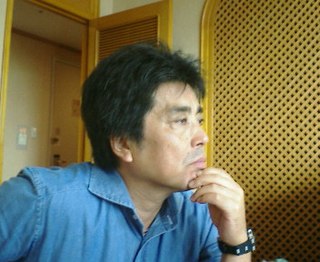 W
WRyū Murakami is a Japanese novelist, short story writer, essayist and filmmaker. His novels explore human nature through themes of disillusion, drug use, surrealism, murder and war, set against the dark backdrop of Japan. His best known novels are Almost Transparent Blue, Audition, Coin Locker Babies and In the Miso Soup.
 W
WMurō Saisei , real name Murō Terumichi, was a Japanese writer of poetry, short stories and novels.
 W
WTatsuo Nagai was a writer of short stories, novels, and essays, active in the Shōwa period Japan, known for his portrayals of city life. Nagai was also known as a haiku poet under the pen-name of "Tomonkyo".
 W
WMitsuo Nakamura was the pen-name of a writer of biographies and stage-plays, and a literary critic active in Shōwa period Japan. His real name was Koba Ichirō.
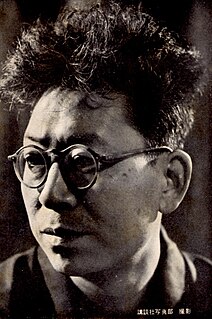 W
WShigeharu Nakano was a Japanese author and Japanese Communist Party (JCP) politician.
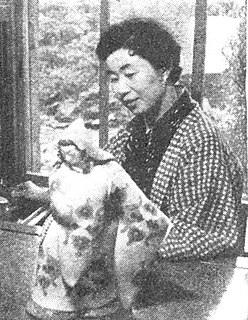 W
WTsuneko Nakazato was the pen-name of a novelist in Shōwa period Japan. Her real name was Nakazato Tsune.
 W
WJunzaburō Nishiwaki was a contemporary Japanese poet and literary critic, active in Shōwa period Japan, specializing in modernism, Dadaism and surrealism. He was also a noted painter of watercolors.
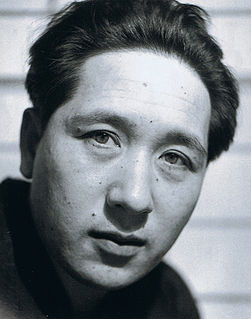 W
WFumio Niwa was a Japanese novelist with a long list of works, the most famous in the West being his novel The Buddha Tree.
 W
WYaeko Nogami was the pen-name of a novelist of the Shōwa period Japan. Her maiden name was Kotegawa Yae.
 W
WKenzaburō Ōe is a Japanese writer and a major figure in contemporary Japanese literature. His novels, short stories and essays, strongly influenced by French and American literature and literary theory, deal with political, social and philosophical issues, including nuclear weapons, nuclear power, social non-conformism, and existentialism. Ōe was awarded the Nobel Prize in Literature in 1994 for creating "an imagined world, where life and myth condense to form a disconcerting picture of the human predicament today".
 W
WAnna Ogino is a Japanese author and professor of literature at Keio University. She has won the Akutagawa Prize, the Yomiuri Prize, and the Itō Sei Literature Prize.
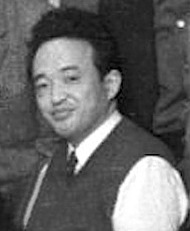 W
WTan Onuma was a noted Japanese author. Onuma received his degree in English literature from Waseda University in 1942, and in 1958 became a Waseda professor in the Faculty of Letters. He received the 1969 Yomiuri Prize for Kaichūdokei and in 1989 was named a member of the Japan Art Academy.
 W
WShōhei Ōoka was a Japanese novelist, literary critic, and lecturer and translator of French literature who was active during the Shōwa period of Japan. Ōoka belongs to the group of postwar writers whose World War II experiences at home and abroad figure prominently in their works. Over his lifetime, he contributed short stories and critical essays to almost every literary magazine in Japan.
 W
WMokichi Saitō was a Japanese poet of the Taishō period, a member of the Araragi school of tanka, and a psychiatrist.
 W
WHaruo Sato was a Japanese novelist and poet active during the Taishō and Shōwa periods of Japan. His works are known for their explorations of melancholy. He won the 4th Yomiuri Prize.
 W
WTon Satomi is the pen-name of Japanese author Hideo Yamanouchi. Satomi was known for the craftsmanship of his dialogue and command of the Japanese language. His two elder brothers, Ikuma Arishima and Takeo Arishima, were also authors.
 W
WToshio Shimao was a Japanese novelist. He has been called a "writer's writer", which is used as both a compliment and criticism.
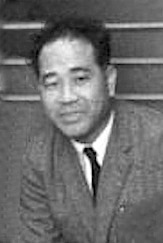 W
WJunzō Shōno was a Japanese novelist. A native of Osaka, he began writing novels after World War II. He won the 1954 Akutagawa Prize for his book Purusaido Shokei. Shōno's other award-winning books include Seibutsu, for which he won the Shinchosha literary prize, Yube no Kumo, which was awarded the 1965 Yomiuri Prize, and Eawase which took the Noma literary prize.
 W
WMutsuo Takahashi is one of the most prominent and prolific male poets, essayists, and writers of contemporary Japan, with more than three dozen collections of poetry, several works of prose, dozens of books of essays, and several major literary prizes to his name. He is especially well known for his open writing about male homoeroticism. He currently lives in the seaside town of Zushi, several kilometers south of Yokohama, Japan.
 W
WKōtarō Takamura was a Japanese poet and sculptor.
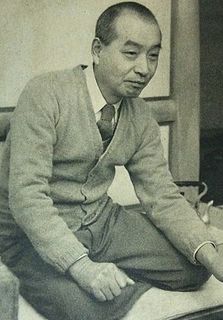 W
WKōsaku Takii was a noted Japanese haiku poet, short story writer, and author of the celebrated I novel Mugen Hōyō.
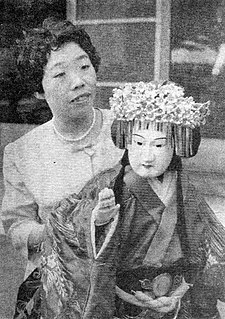 W
WSeiko Tanabe was a Japanese author. She graduated from the Department of Japanese Literature of Shōin Joshi Senmon Gakkō. Author of numerous novels, she won the Akutagawa Prize, Yomiuri Prize, and Asahi Prize, and received the Order of Culture for her contributions to literature.
 W
WYōko Tawada is a Japanese writer currently living in Berlin, Germany. She writes in both Japanese and German. Tawada has won numerous literary awards, including the Akutagawa Prize, the Tanizaki Prize, the Noma Literary Prize, the Izumi Kyōka Prize for Literature, the Gunzo Prize for New Writers, the Goethe Medal, the Kleist Prize, and a National Book Award.
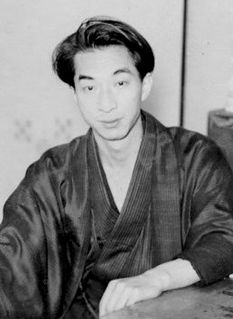 W
WShigeru Tonomura was a Japanese author of I novels. Kanji of his real name was 外村 茂, but it was same reading as the pen name.
 W
WKōji Uno was a noted Japanese novelist and short story writer.
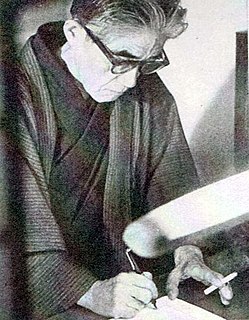 W
WYoshie Wada was a Japanese novelist and critic.
 W
WYoshinori Yagi was a noted Japanese author.
 W
WShōtarō Yasuoka was a Japanese writer.
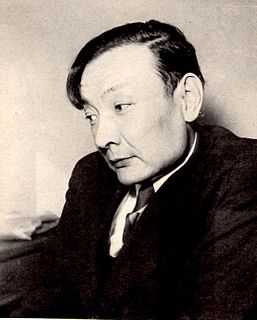 W
WKen'ichi Yoshida was a Japanese author and literary critic in Shōwa period Japan.
 W
WJunnosuke Yoshiyuki was a Japanese novelist and short-story writer, and a member of the so-called "Third Generation of Postwar Writers" (第3の新人).